Many people think parvovirus is a puppy disease since it is so common and contagious in young dogs. Puppy immune systems aren’t as strong as older dogs, but can an old dog get parvo, especially if he or she is unvaccinated or only partially vaccinated?
The quick answer is yes, though it may not be as common as in younger dogs. In this article we’ll review the different instances where parvo in senior dogs may be possible, but first let’s talking about what parvovirus is, as well of the symptoms to be aware of.
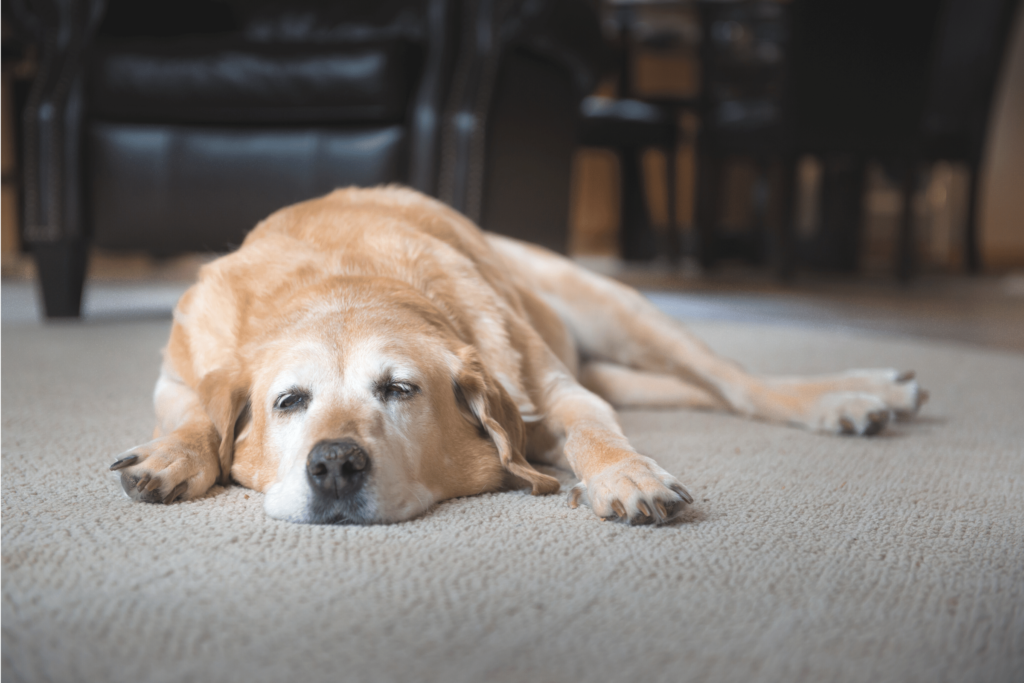
What is Canine Parvovirus?
Parvovirus is a potentially deadly virus that affects dogs’ gastrointestinal tracts. Per the Merck Veterinary Manual the virus is responsible for causing GI disease in infected dogs which affects the stomach and small intestines, where the virus produces the most damage.
Once infected, the virus swiftly spreads within the dog destroying cells and impairing absorption so that they are unable to retain the nutrients that are critical to their survival. This can lead to severe malnutrition and dehydration. If left untreated, parvo can also affect a dog’s heart and other vital organs.
This highly contagious virus spreads through direct contact with an infected dog or indirect contact with an object contaminated by feces. Even if an infected dog’s feces is picked up from the ground, the virus can survive there for a lengthy amount of time because it is heat- and cold-resistant.
What is the Most Common Age of a Dog with Parvo?
Dogs of any age can become sick with parvovirus, but it is most common in puppies between the age of 6 to 20 weeks. In fact, parvo is often the leading cause of death in puppies under 4 months old, due to dehydration from vomiting and diarrhea, and sepsis, from the bacterial infection entering the bloodstream. (Colorado Animal Specialty & Emergency)
While younger dogs are more susceptible to contracting parvo, if an older dog is unvaccinated (or even sometimes vaccinated), he or she can get the illness as well if it is exposed to other infected dogs. Let’s talk more about this in the next section.
Can an Old Dog Get Parvo?
Parvovirus in senior dogs is possible but not as common as puppies contracting the virus. Even older dogs with a well-developed immune system can contract parvo.
If an older dog is unvaccinated (or never received the booster shots), he or she can be susceptible to the illness if exposed to other infected dogs.
But can older vaccinated dogs get parvo?
The answer is yes.
If the dog is fully vaccinated, there is a small chance they could still contract parvo if exposed, especially if he or she is suffering from a health condition that suppresses their immune system.
Although a vaccinated dog can still contract parvovirus, its symptoms will likely be much less severe than those of an unvaccinated dog.
Signs and Symptoms of Parvo in Older Dogs
Knowing the signs of parvovirus can make a big difference in your dog’s health. If you think your dog may be suffering from any parvo symptoms, the sooner they get in to see the vet, the higher their chance of survival.
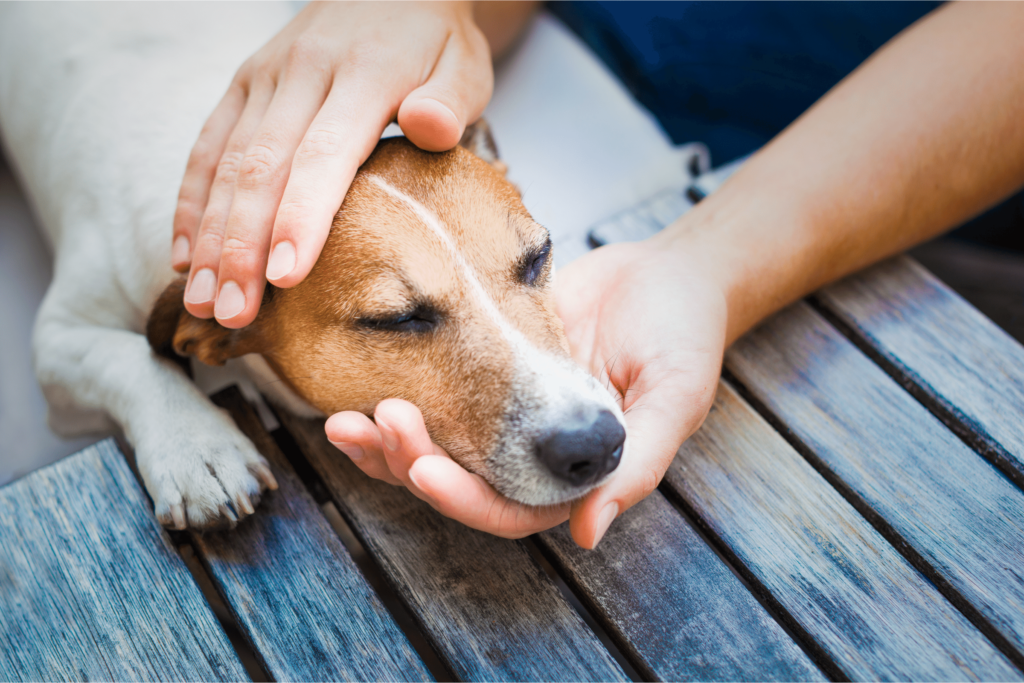
If your dog is displaying any one of these symptoms, that is reason enough for a vet visit, but if they are experiencing a number of the below symptoms, there should be a definite cause for concern. Keep an eye out for:
- Severe, bloody diarrhea
- Lethargy
- Refusal to eat
- Fever
- Vomiting
- Weight loss
- Weakness
- Dehydration
According to the American Veterinary Medical Association (AVMA), the majority of deaths from parvovirus happen within 48 to 72 hours of when the dog started showing symptoms of the virus. That is extremely quick. If you’ve noticed these symptoms in your dog, even if you’re not sure it’s parvo, it is best to contact your veterinarian immediately (or an after-hours emergency vet).
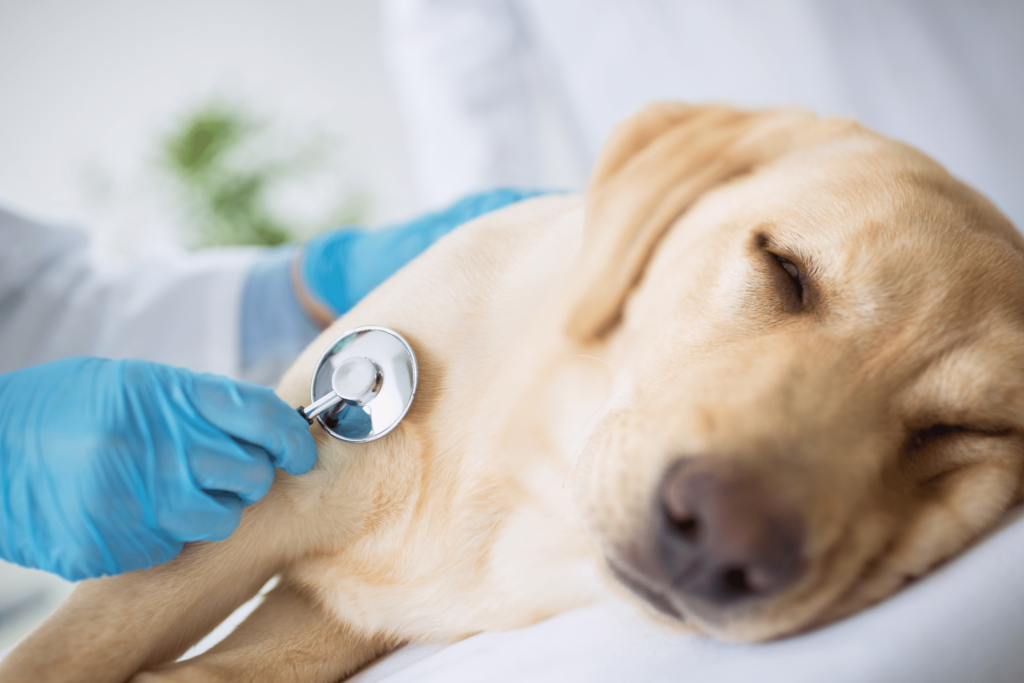
Parvovirus Survival Rate in Dogs
Parvo is a serious disease that is potentially fatal. The survival rate of dogs with parvo who are treated by a veterinarian is 68 to 92 percent (American Kennel Club).
If parvovirus is caught early and treatment begins immediately, puppies that survive the first three-to-four days are likely to make a full recovery.
Older dogs who contract parvo have better chances of survival than puppies due to their stronger immune system, but treatment by their veterinarian is still a must.
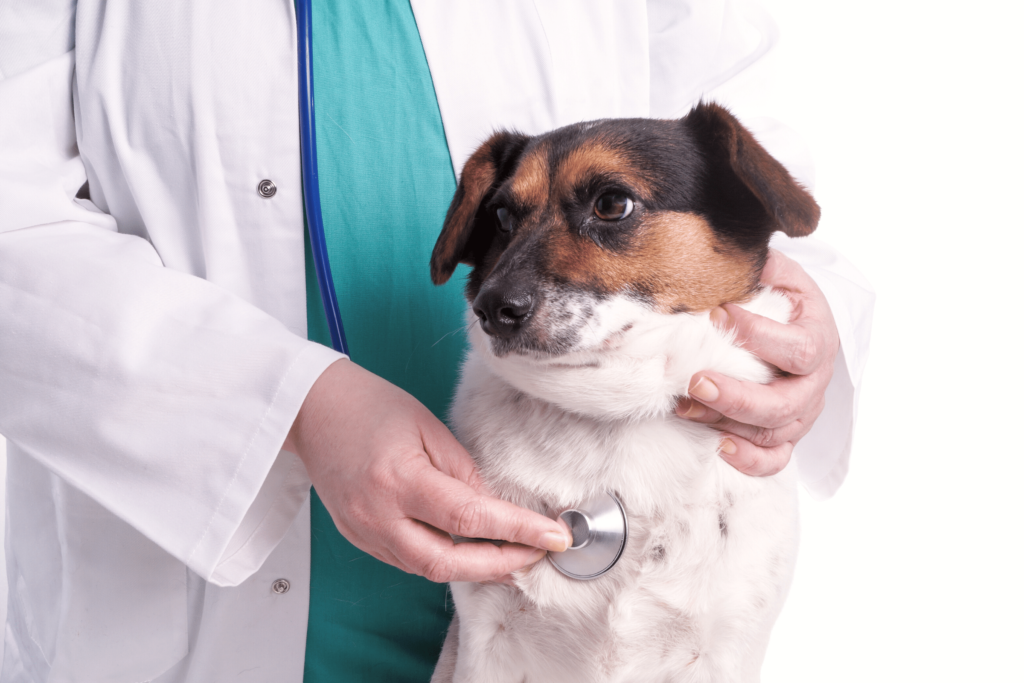
Parvovirus Prevention
To prevent the spread of parvovirus in dogs, puppies should receive the canine parvovirus vaccine, which is usually given in three doses at ages 6 to 8 weeks, 10 to 12 weeks, and 14 to 16 weeks. A dog that has not received all doses is not considered fully vaccinated and can still contract and spread parvovirus.
One year after completing the vaccine series, puppies will need a parvovirus booster shot. According to Fetch by WebMD, vaccinated dogs will need another booster every three years after that.
Unvaccinated dogs and those with incomplete vaccinations should not be allowed around other dogs, whether it’s a family friend’s pet, group training class dogs, or other dogs at a daycare.
If you have a dog infected with parvovirus, you can work to prevent the spread of parvo from one dog to another by separating the parvo-infected dog from other dogs in your household, should you have any. A thorough cleaning inside and outside of your house is also necessary. Do not let any of your other dogs go potty or sniff around in the same area your infected dog has been.
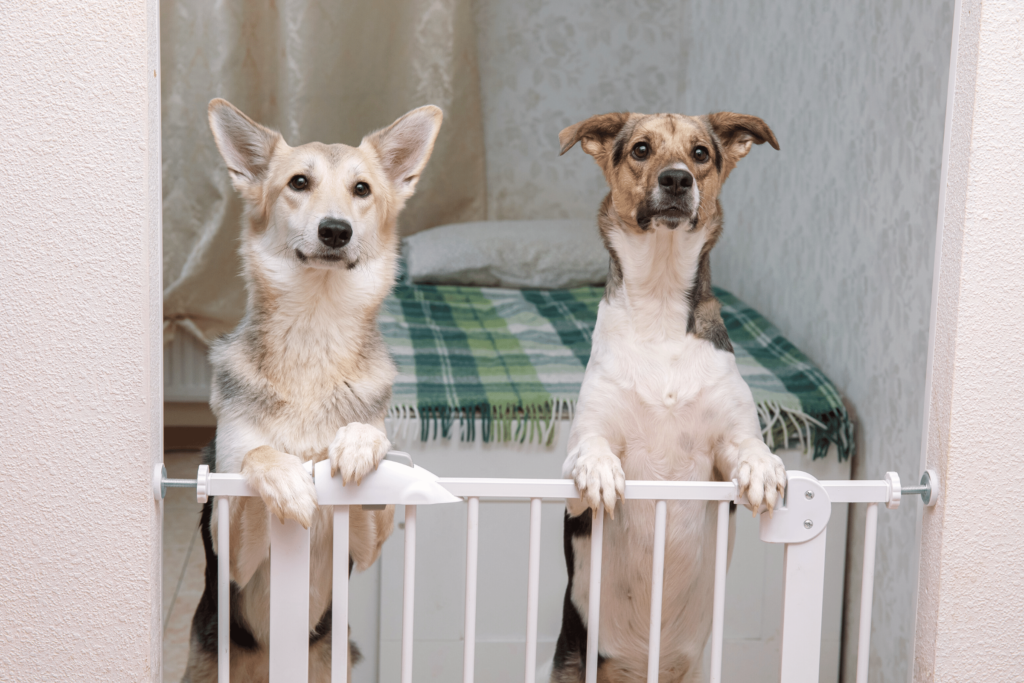
If you’ve been handling or cleaning up after your infected dog, you’ll want to wash your hands and change clothes before handling other dogs.
So how do you treat parvovirus in dogs? Let’s talk about that in the next section.
Parvovirus Treatment
Unfortunately, there is no cure for parvo, but there are treatments available if parvo is caught early enough.
Once the veterinarian confirms via bloodwork a dog is suffering from parvovirus, they will then only be able to offer supportive care as the illness runs its course.
The dog may be put on IV fluids to treat dehydration and other medications would likely be given to calm vomiting and diarrhea. Though parvo is a virus, an antibiotic may also be given since parvo suppresses a dog’s immune system, making it more susceptible to secondary bacterial infections.
How Much Does It Cost to Treat Parvovirus?
Parvo treatment is not cheap. Between the vet visit, diagnosis, and treatment, parvo can cost between $500 and $2,000. This average is a wide range that depends on whether hospitalization or long-term care is needed.
It’s best to vaccinate your dog and keep up with the booster shots in order to prevent parvo in the first place. A parvo vaccine (also known as DHPP (Distemper, Hepatitis, Parainfluenza, Parvo)) will only run you about $35-45. This way you’ll be protecting your pup and your wallet!
It is not recommended to try and treat parvovirus on your own with home remedies. As we’ve seen, the mortality rate even with veterinarian treatment is a scary statistic.
Conclusion
As we’ve discussed, older dogs can get parvo though it may not be as often or common as puppies being diagnosed with parvo.

I hope you and your pup never have to deal with parvovirus, or if you already have, that everything turned out ok!
Have you known an older dog to get parvovirus? Share your experience and any lessons learned in the comments!
Related Posts
- What is Dog Pet Insurance (and is it Worth the Cost)?
- 45 Most Common Toxic Plants to Dogs (with Photos)
- Dog Allergies to Chicken? Here’s How to Find Out!
